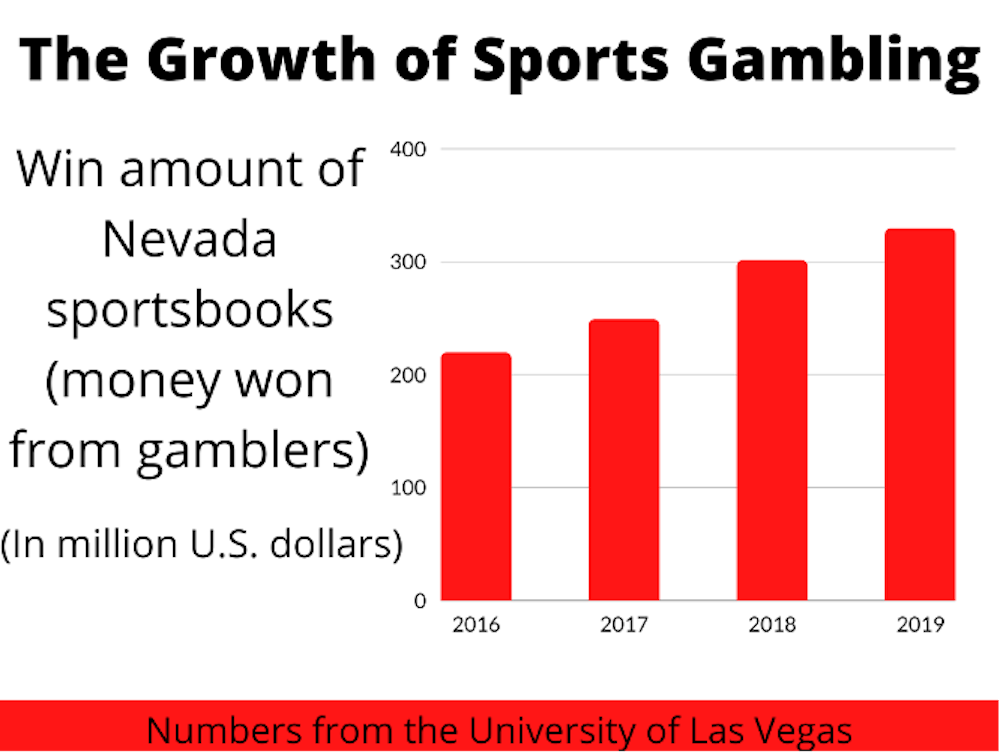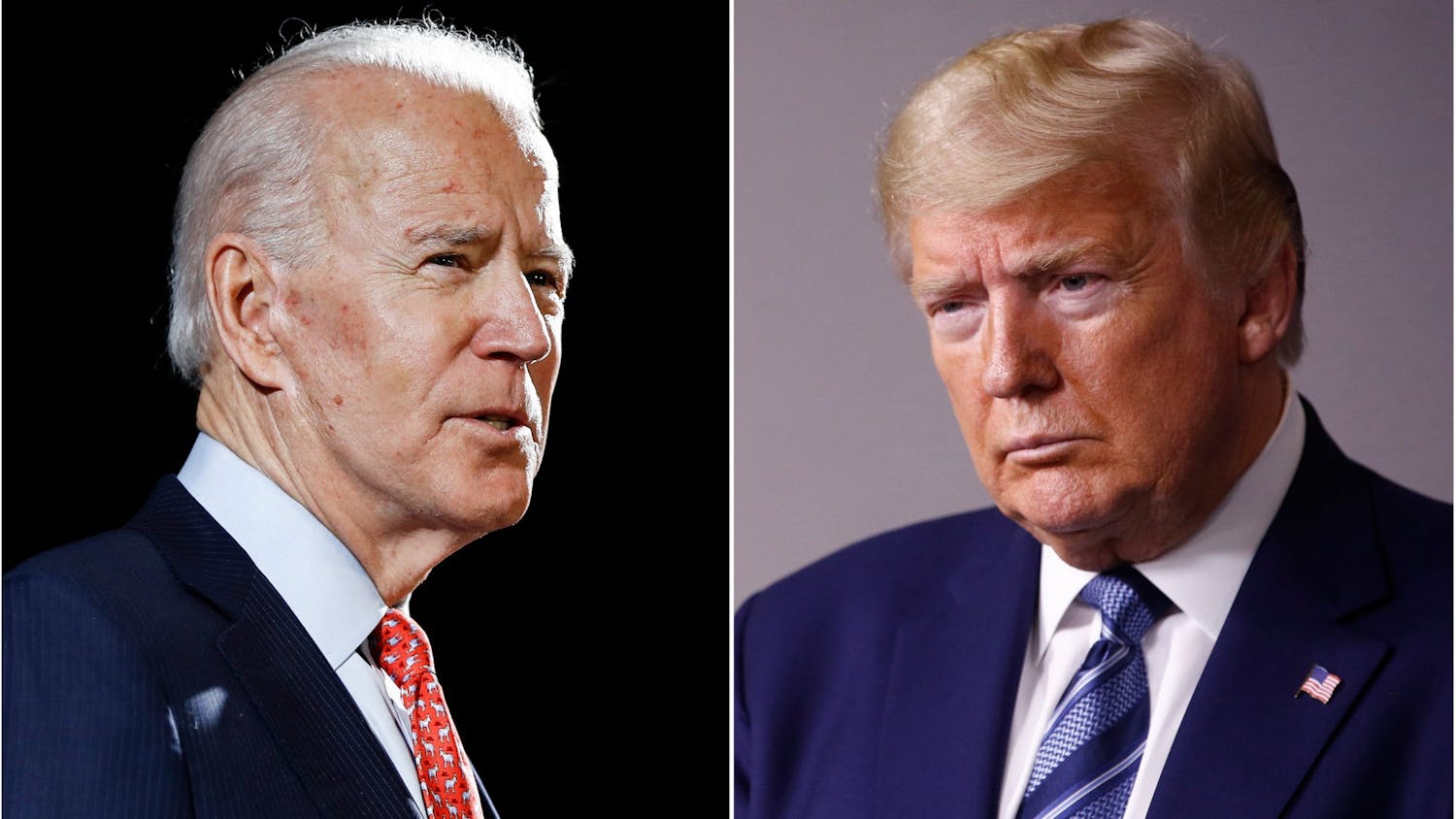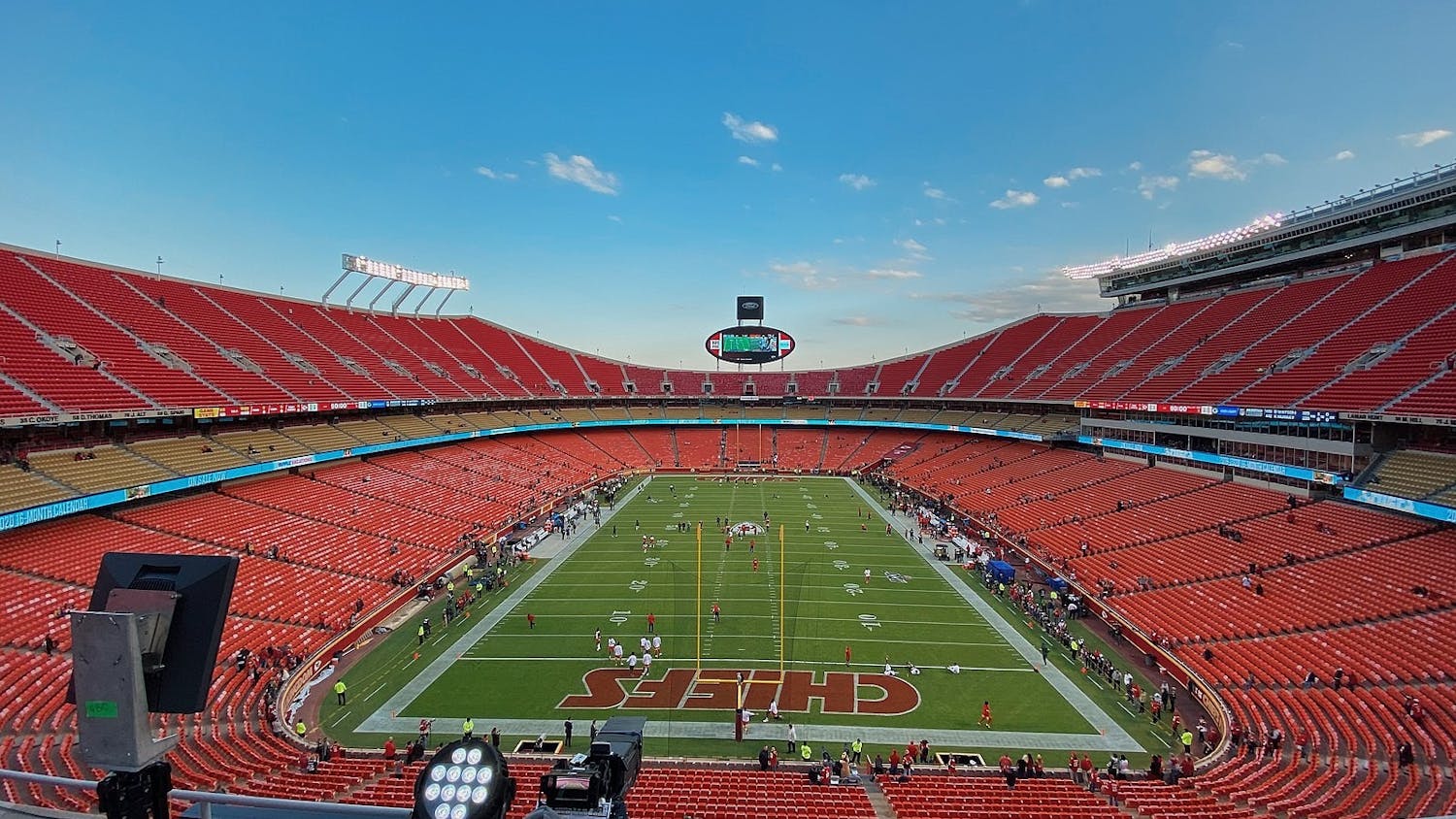A 2018 Supreme Court decision in favor of the state of New Jersey and Gov. Phillip D. Murphy changed the way sports would be consumed in the United States forever.
After former Gov. Chris Christie signed a bill in 2012 that would permit casinos and racetracks to offer sports gambling, the state entered a six-year-long battle with the NCAA, NBA, NFL, MLB and NHL.
The case was covered with particular carefulness, as a ruling in either direction would set a precedent that would be difficult to undo.
That precedent has been set, and after online/mobile sports gambling was approved 30 days after the 2018 decision, other states followed.
In August 2018, the first online sports bet was taken in New Jersey. According to Ballotpedia, 25 states and Washington D.C. have since legalized the activity. Included in those states is Indiana.
Since being legalized in May 2019, legalsportsreport.com reports sports betting has brought in over $200 million in revenue for the Hoosier state. Revenue, however, is just the money that the sportsbook keeps. The total money wagered has climbed above $2 billion.
The incentive for the state? Taxes.
Indiana has raked in over $19 million in tax/jurisdiction revenue since sports betting was legalized. New Jersey’s tax/jurisdiction revenue has risen above $100 million.
“I have to believe the states are doing this not because it’s a great thing for the population to get engaged with,” Associate Professor of Marketing Michael Bates said. “But because it’s a great way for them to increase tax revenues.”
Bates highlighted that in any form of gambling, the odds will always be stacked against the bettor. In this particular system, Bates noted that the government is encouraging sports betting, yet it is statistically likely that they will be harmed financially by the activity.
With the states on board for the tax revenue, sportsbooks have taken advantage of the unique marketing possibilities they have. High-reward promotions attract those who otherwise may not participate.
“In my marketing classes, we say that the purpose of marketing is to create a mutually satisfying exchange, and that comes with what’s good and beneficial to customers and what’s good and beneficial to the business,” Bates said. “(Sportsbooks) have sales promotions and provide incentives to get people started. I’ve heard things like ‘guaranteed wins’ and all kinds of free bets. I just don’t know if that’s really pushing into creating a mutually satisfying exchange.”
The growth of the industry isn’t slowing down anytime soon, either. States who haven’t legalized it yet are either currently on the way or are considering it.
Take Ohio, for example. While legislation hasn’t passed in the state, multiple bills have been proposed as its border states, such as Indiana, Pennsylvania, West Virginia and Michigan legalize it.
“The big thing in Ohio is that it’s surrounded by states that are allowing it,” Columbus Dispatch Sports Columnist Rob Oller said. “That was a big pushback, that the state is losing all this money across state lines on sports bets.”
Oller mentioned the rise of sports writing that focuses on gambling. USA Today, which is a member of the same company, Gannett, that owns the Dispatch, has a section on their sports website that is betting-focused.
Sports betting has also become more accessible, through mobile apps and websites that give anyone with a smartphone the opportunity to place a bet at their fingertips.

Assistant Professor of Sport Management Amy Stucky noticed that the demographic of people who watch sports for entertainment, and those who watch sports as gamblers, is merging.
“There’s always going to be those two (gamblers and spectators), but the middle area is growing larger,” Stucky said. “We’re a very sports-centric society, and there’s such a complexity in it.”
Stucky referenced the dwindling free-to-play options on fantasy websites, such as Yahoo!.
The accessibility, combined with the dynamic of sports fandom and the excitement of viewing a game live, has helped lead to an explosion in popularity.
In a survey of Samuel Morris Hall residents, 23.5% said they had wagered money in the past year using an online sportsbook. Over 50% said they had participated in a fantasy sports league with an entry fee.
Indiana’s monthly revenue, according to legalsportsreport.com, has risen from $8.56 million in Sept. 2019, to $24.31 million in Dec. 2020.
The rapid rise in both access and acceptability has led to some interesting philosophical questions surrounding the activity. Those questions aren’t easily answered.
“Gambling could have the ability to change the mission of sport and the mission of the game, and it worries me a little bit,” Stucky said.





